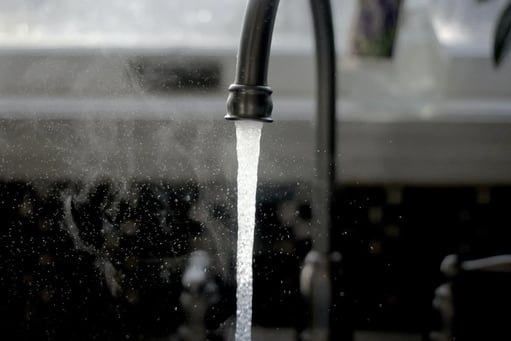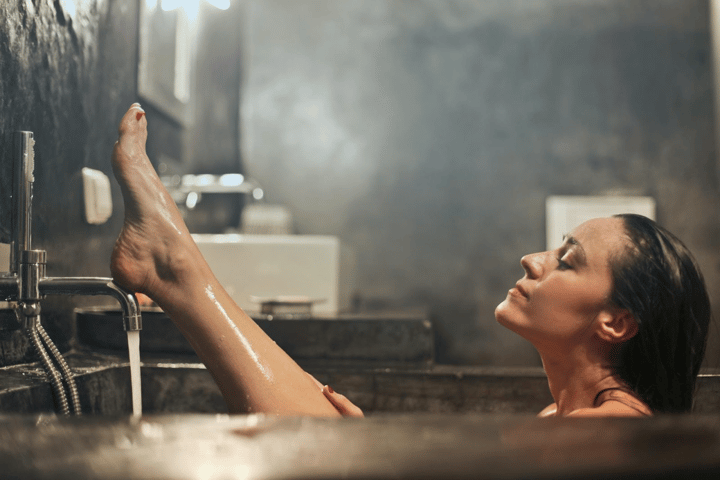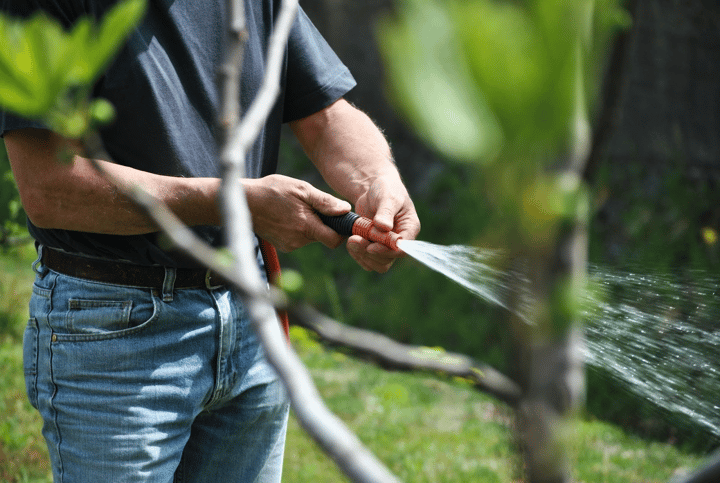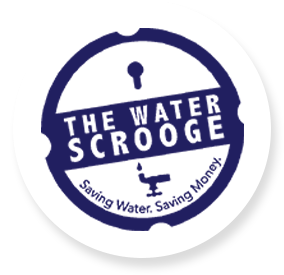4 min read
Understanding Your Property’s Water Usage: Insights for Landlords
![]() David Schwartz
Jun 7, 2023 2:59:20 PM
David Schwartz
Jun 7, 2023 2:59:20 PM

Effective rental property management and maintenance requires paying close attention to water usage patterns because it affects operational costs and environmental sustainability, which you must take seriously as a landlord. As a result, understanding when, how, and why water gets used in your building is critical because it provides essential insights into how to optimize usage while encouraging environmentally responsible practices among tenants.
By understanding how your property uses water, you can develop strategic maintenance plans to promote cost-effective activity while ensuring that they comply with evolving local and federal conservation regulations.
Also, making the best use of this critical resource improves your building's long-term sustainability while enhancing its reputation as an attractive location with responsible management. This guide provides landlords with vital details on their buildings' water consumption by outlining the importance, benefits, and practical strategies for optimizing it. With an in-depth knowledge of your rental property's unique water usage patterns, you can create efficient, long-term solutions for managing this vital resource.
Related: How to Save Water and Significantly Lower Property Operating Expenses
The Importance of Monitoring Water Usage
The financial repercussions are an essential reason why landlords need to consider their tenants' water usage habits. Excess usage significantly affects utility bills, resulting in sudden increases in costs that put additional strain on already-strained budgets. Furthermore, long-term misuse or undetected leaks can result in expensive damage, such as mold or mildew buildup or structural problems. Water conservation measures are no longer an option; they are becoming increasingly important as global resource depletion rates impact humans and other life forms.
In this regard, landlords are responsible for ensuring that their tenants use water responsibly inside their rental property. Excessive water use depletes our planet's resources and contributes to energy waste during the treatment and delivery processes. Encouraging tenants to use water efficiently can significantly impact the environment. Finally, effective management systems promoting lower utility costs appeal to prospective buyers or renters looking for properties with higher value propositions.
These rentals also tend to attract more attention while reducing vacant periods between occupancies, which is essential for the property's revenue. Also, incorporating water-efficient features could help meet specific green standards, boosting their appeal to potential consumers. Finally, regulating water consumption has a positive impact: it lowers costs while encouraging environmental conservation and increasing the value of your property.
Are you looking for a reputable water flow management device to cut your water expenses? The Water Scrooge has them available!
Key Factors Influencing Water Usage

Understanding what drives water consumption in rental properties is the first step to managing it. Showers, faucets, toilets, and dishwashers in homes use a lot of water. Outdoor areas with irrigation systems or pools can also use a lot of water.
Tenant behavior like long showers or leaving taps on may boost usage. In addition, warmer, drier, or watering-restricted areas may have different consumption patterns than cooler, wetter areas. Landlords must understand these factors to successfully manage their property's usage and increase market value through efficient water management systems and lower utility costs.
If one of the highlights of your rental properties is a garden or outdoor patio, keep in mind that gardens will inherently lead to increased water consumption; thus, it’s essential to manage the garden's soil moisture effectively. Using solutions like weed fabric can help control unwanted weeds, conserve soil moisture, and reduce overall water usage, all while maintaining the aesthetic appeal of your outdoor space.
As society moves toward sustainable living, conserving freshwater becomes more critical at the individual and community levels. We reduce waste by installing low-flow plumbing fixtures or rainwater harvesting systems in our homes, and they may qualify for green certification. This approach saves money, improves the environment, and boosts property value.
Related: 5 Signs Your Tenants Are Using Excessive Water
Tools and Methods for Monitoring Water Usage
Water management in rental properties is something you can accomplish as a landlord using various methods and tools available today. One such tool is carefully reviewing monthly or quarterly water bills, which can help determine how much water your tenants have used over specific periods. In addition, unusual rises in usage should get treated with caution because they may indicate problems such as leaks or changes in tenant behavior patterns. Using standard equipment like water meters regularly is also critical to ensure accurate consumption volume tracking.
Some landlords use sub-metering solutions to ensure tenants are accurately billed and held accountable for their water consumption in multi-family properties. Providing each unit with its own meter makes the payment process more streamlined and transparent while encouraging residents to participate in conservation efforts. Furthermore, this technique facilitates the early detection of leaks or other discrepancies in the consumption rates of specific units.
Smart home technologies provide advanced possibilities for monitoring water usage in today's digital age. For example, shower timers like The Water Scrooge's can encourage shorter showers, while our Leak Detection System may give early warnings of potential water damage. These systems not only provide immediate insights into water consumption, but they can also generate long-term usage reports, helping landlords identify trends and areas for improvement.
Do you want to understand your water bill or reduce your usage? Contact The Water Scrooge to learn more about our kits and installation services.
Steps to Reduce Water Usage on Your Property
Reducing water usage in your property is something you can achieve with strategic upgrades and policy implementations. Consider installing water-efficient fixtures and appliances, such as low-flow showerheads, dual-flush toilets, or energy-star-rated dishwashers. Products like The Water Scrooge's Shower Flow Controller can be beneficial in managing water consumption.
Encourage tenants to conserve water as part of sustainable property management. One method is to implement rules and policies that direct them toward efficient laundry practices, prompt leak reporting, and mindful watering of outdoor plants.
As a landlord, you can also consider modifying your properties with features such as xeriscaping for outdoor areas, which reduces or eliminates the need for supplemental water. This method works best in dry climates, but you can try it anywhere. These strategies will help reduce water consumption while lowering utility costs and promoting more sustainable property management.
Embracing Efficient Water Management

Every landlord must recognize the vital role of understanding and monitoring water usage in rental properties. Financial savings, environmental benefits, and property value enhancements are all possible with clear insights into water consumption patterns.
We encourage landlords to use the tools and strategies discussed here to manage their properties' water usage effectively. The Water Scrooge is ready to help you navigate water-efficient property management. Contact us for more information and advice - it's time to ride the wave of more sustainable and cost-effective property management.
Related: Water Conservation Ways: 4 Ways Landlords Can Save Water

